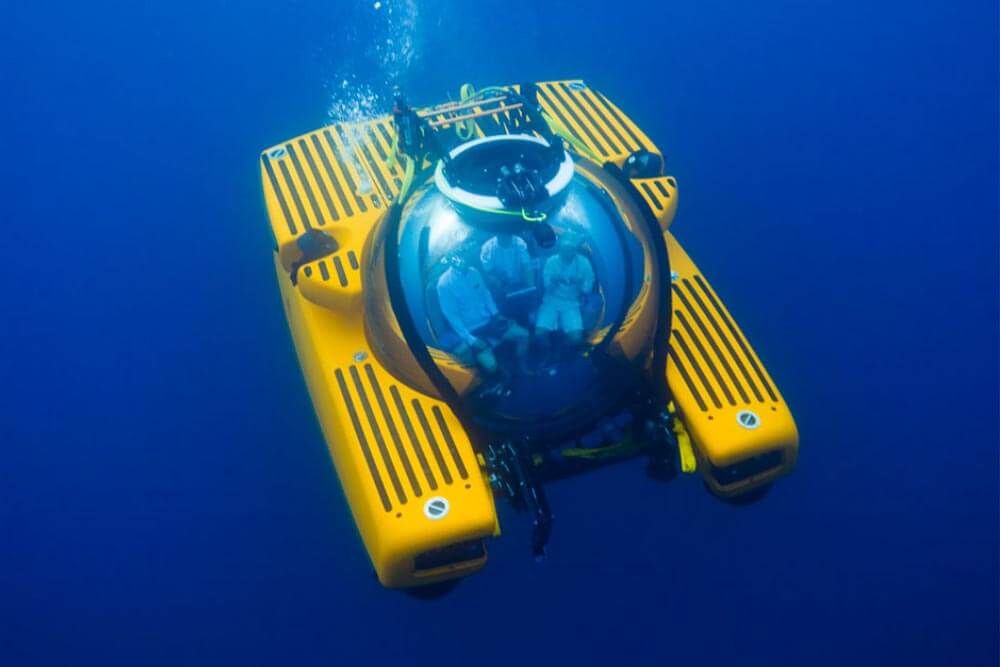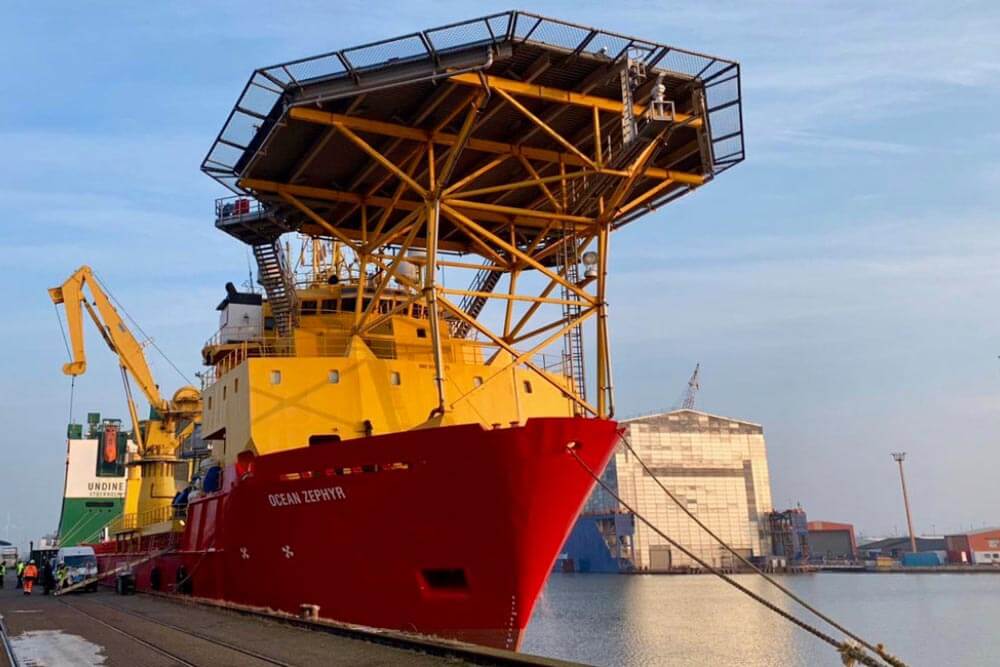
By DIVE Staff
The starting phase of one of the most ambitious marine expeditions to explore the depths of the Indian Ocean is underway.
Ocean Zephyr, mothership to Nekton Mission II, now designated ‘First Descent’, set sail from Bremerhaven in Germany bound for Seychelles on 24 January. The first seven-week long mission will commence this coming March, and the expedition is expected to run until 2022. First Descent is supported by more than 40 world-leading organisations, including specialists in the fields of sub-sea exploration, artificial intelligence and cutting-edge communication technologies. Together, First Descent will explore the Indian Ocean, the world’s least explored and least protected ocean.
The mission’s research will focus on depths between the surface and the Bathyal Zone, the region of the ocean between 200m and 3000m. These depths are where the greatest patterns of marine diversity can be found, and also the range most likely to be impacted by human activity. How the Indian Ocean changes in the coming decades will profoundly affect not only the marine environment but also the lives and livelihoods region’s 2.5billion human population.
According to a press release from Nekton, ‘First Descent uniquely combines scientific research, capacity development programmes, ocean management and governance initiatives with public engagement and ocean literacy activities to achieve the greatest coordinated impact.’
At least 50 descents are planned during the first expedition to Seychelles. Very little research has been undertaken beneath scuba diving depths across Seychelles’ vast ocean territory of 1.37million sq km. First Descent will generate critical data to support Seychelles’ commitment to protecting 30 per cent of their national waters, equivalent to nearly twice the size of the United Kingdom.
‘Our ocean is undergoing rapid ecological transformation by human activities,’ said Callum Roberts, Professor of Marine Conservation Biology and Nekton Trustee. ‘The scientific consensus is that we must have an enforced protected area covering at least 30 per cent protection of the ocean by 2030 to support a resilient ocean and a resilient planet, he said.’Having overfished the majority of the surface waters, we are now gaining the industrial capacity to empty the Bathyal Zone before we discover what is there. We face a race for the deep.’

During the mission, the team of scientists will deploy a raft of new cutting-edge research, sampling, survey and video technologies from their state-of-the-art submersibles and remote operated vehicles. New artificial intelligence programmes are being developed by Nekton and the University of Oxford to accelerate analysis and publication. The data will be ‘dynamically harmonised’ through OcToPUS – a new global ocean data portal developed by Nekton – and a range of different camera systems will be used to create the first 3D maps of the Indian Ocean’s depths.
First Descent will also deploy new subsea optical communication technologies, allowing for live broadcasts to be made from multiple submersibles as the explore the depths of the Indian Ocean. A series of live programmes will be produced and broadcast worldwide by Sky News and Sky Atlantic as part of the Sky Ocean Rescue initiative.
Dr Lucy Woodall, Nekton Principal Scientist, University of Oxford, who is leading the research said: ‘The biological communities we are researching are critical for many reasons, from climate stability to food security, from carbon cycling to the air we breathe. We expect to discover dozens of species new to science that could be anything from new corals, algae or sponges to larger more charismatic animals like dogsharks.’
Oliver Steeds, Nekton’s Mission Director, Founder and submersible pilot, said: ‘The deep ocean is the final frontier. It’s our largest and most critical ecosystem, yet the most important part of our planet is still the least known. We now have the technology to discover more of our planet in the next ten years than we have in the past 100,000.’
Mission Blue founder and world-leading conservationist Dr Sylvia Earle, said: ‘Nekton is boldly undertaking an exploration of the vast depths of the sea with new technologies and new ways of communicating the urgent message that everything we care about – the economy, health, security and most importantly, our existence – depends on understanding and protecting the living ocean.’
For more information and to follow the team’s progress, visit www.nektonmission.org and subscribe to the Nekton YouTube channel.


